#quistory
Explore tagged Tumblr posts
Text
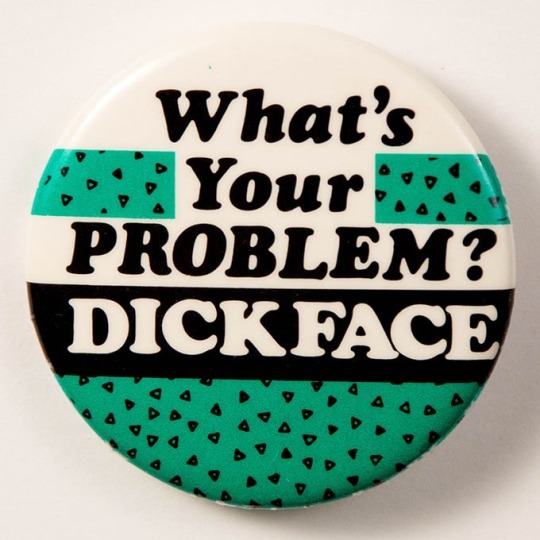
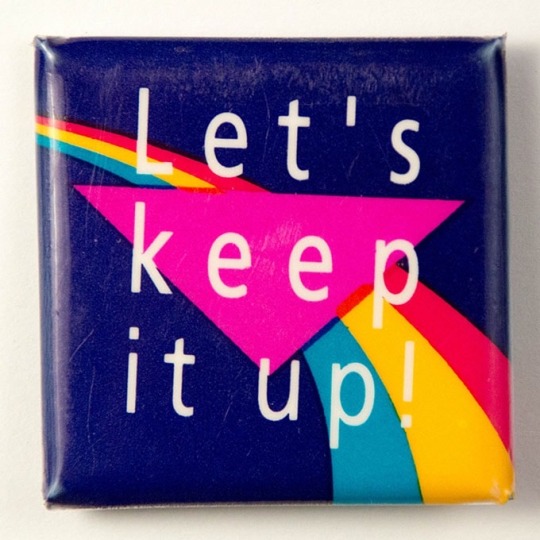
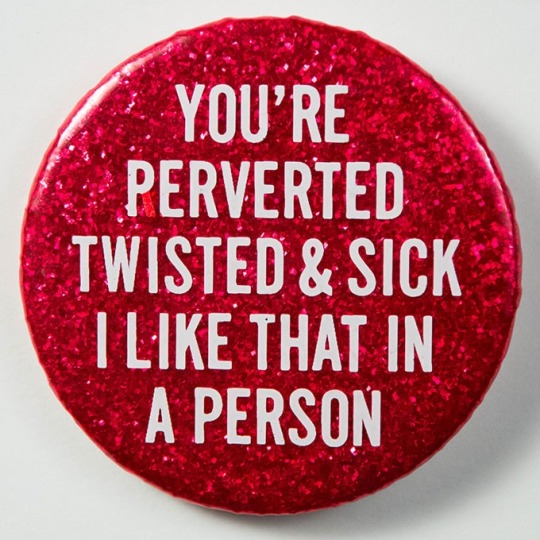
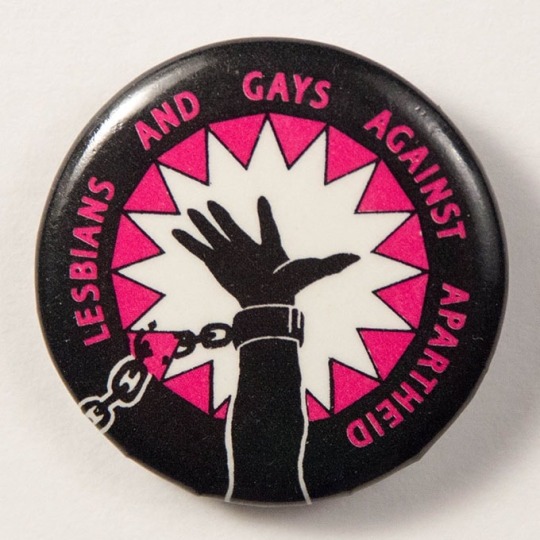
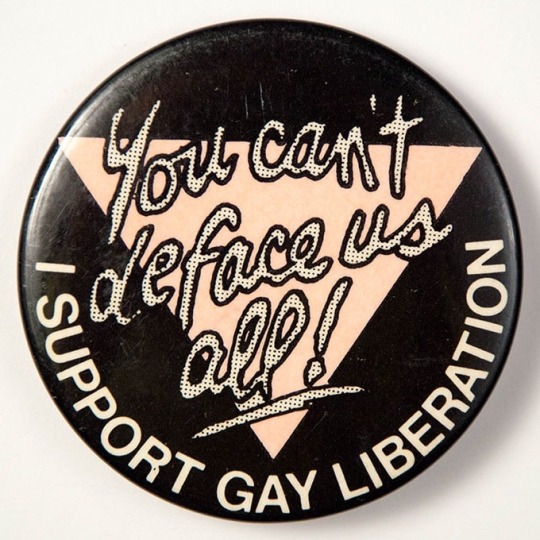
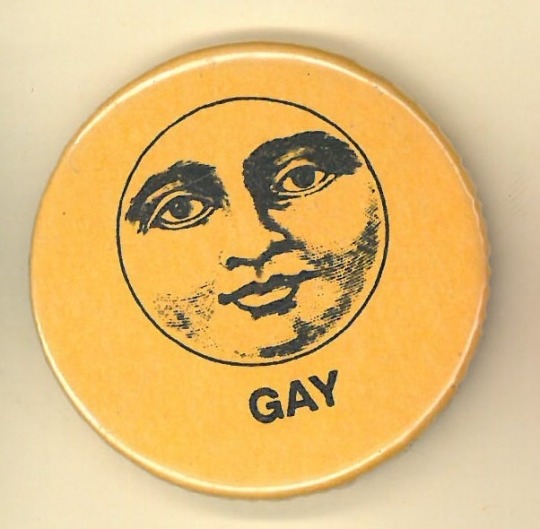
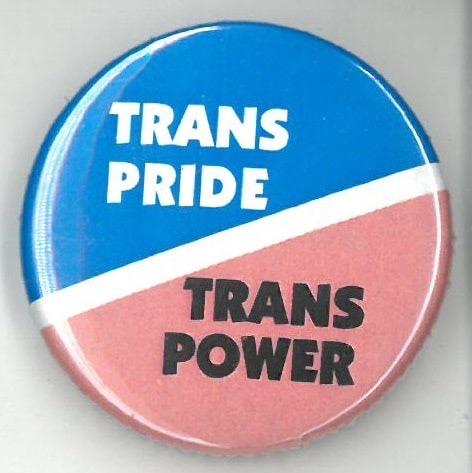


vintage buttons via the arquives, canada's lgbtq2+ archives
6K notes
·
View notes
Text
Hey if you want to learn some queer history...
I highly suggest @historyisgaypodcast !!
https://www.historyisgaypodcast.com
its super well done
uses tons of reliable resources and references
is funny
hosted by two really cool queer folks
they cover all kinds of people, not just white gays
reclaim your history!
90 notes
·
View notes
Photo

Still really fond of this portrait of We'Wha, a prominent Two-Spirit from the Zuni tribe. Take a moment to look her up. Thanks to @sprager and Quist for the commission! #wewha #zuni #portrait #newmexico #art #painting #patterns #illustration #twospirit #pride #pridemonth #quist #quistory (at Trinity, Alabama)
#pridemonth#zuni#art#newmexico#quistory#patterns#painting#portrait#illustration#twospirit#wewha#quist#pride
1 note
·
View note
Photo

Andrea Camilleri era la nostra coscienza. Quella che ora stiamo perdendo di Domenico Valter Rizzo (...) E infine c’era lui. Salvo Montalbano, quel commissario che per certi versi somigliava a mio padre. Sbirro anche lui, disincantato e senza molte speranze di redenzione. Esattamente come Montalbano, che combatte le sue battaglie non perché pensa che lo Stato (e poi, chi è lo Stato? I politici? Il signor Quistori? Il capo del governo?) ma perché alla fine pensa che la Giustizia (quella vera, non quella delle carte e dei Tribunali) sia l’unica forma di riscatto per i puvirazzi. I Vinti, li avrebbe chiamati Verga – nei suoi romanzi muoiono patendo, senza giustizia e senza riscatto. Ma qui i Vinti alla fine – seppur patiscano un destino infame – una giustizia, catartica se si vuole, alla fine la ottengono e la ottengono anche se Salvo Montalbano ogni tanto le regole le ammansisce alla Giustizia, le procedure se le scorda e con i fetenti riesce ad usare anche la menzogna (lo sfunnapedi) per incastrarli e mandarli dove devono stare. Non è un buonista, Montalbano, e non lo era neppure Camilleri. Anzi, lo scrittore e il personaggio conservano la dote ultima che rimane alle persone perbene di questo Paese disgraziato: quella di indignarsi, anzi di incazzarsi pesantemente e magari pigliare a pagnuttuni qualcuno dei fetenti che scorrazzano per questa Italia incarognita. Camilleri poi è stato un riconciliatore. Mi ha riconciliato con la mia terra. La terra che mi aveva cacciato, fatto a pezzi e magari cercato di levarmi la pelle. Mi ha riconciliato con la Sicilia che ci portiamo dentro tutti noi nati impastati con le sue crete dorate, con le sue polveri nere e con i colori violenti, privi di requie che ci impongono le sue infinite estati. ... Morto Sciascia, siamo tutti orfani di un maestro. Di uno che ci dia la chiave filosofica per affrontare questi tempi feroci. Andrea Camilleri, che di Sciascia fu amico e confidente, diceva di fare il cuntatore di storie. E così avrebbe voluto che calasse il sipario su di lui: finendo il suo cuntu in piazza con gli amici. Ma Camilleri era anche e soprattutto altro, era una coscienza alta che stiamo perdendo. Era la nostra morale che purtroppo si dilava in colate di fango putrescente. Cosa ci rimane? Nulla o poco più. Ci rimane un mondo sfregiato dall’odio e dall’ignoranza. Ma non dell’ignoranza dei puvirazzi di Vigata. No, l’ignoranza di quelli di mezza botta, come li avrebbe chiamati Montalbano. L’ignoranza che diventa odio violento contro chi sta peggio. Rancore, odio, violenza contro i deboli. Questa Italia Camilleri ha provato a raccontarla, infilandola dentro gli ultimi libri. Ma non credo avrebbe mai trovato tutte le parole per raccontarci il suo sconsolato dolore. Un dolore che ereditiamo, che è il nostro. Per lui che ci ha lasciati, sempre troppo presto, e per noi che qui restiamo a tribolare.
33 notes
·
View notes
Photo

NEEDING IT: Solo Performance in Queer Community A Helix Queer Performance Network Workshop Instructed by Heather María Ács Wednesdays, October 23 - December 18, 2019, 7-9:30pm BAX/Brooklyn Arts Exchange (421 Fifth Avenue, Brooklyn) APPLICATIONS DUE SEPTEMBER 6, 2019 at 11:59pm WORKSHOP DESCRIPTION: Are you hungry for a queer-centered space to develop and explore live performance? In this class, we will study queer performance practices and histories (shall we say “quistories?”) in New York City. This class will introduce new techniques while strengthening participants’ natural talents, so artists from any discipline and level of experience are welcome, including those brand new to performance. Each week, we will explore different queer artists and arts movements along with exercises, games, and techniques related to their work, including, but not limited to performance art, theatre, film, movement, literary arts, drag, and interdisciplinary performance. We will discuss the interplay between the individual artist and a broader sense of collectivity, especially as it relates to queer communities’ struggles against intersectional oppressions, while celebrating queer ingenuity and resilience. Queer people have always been foundational to cultural production, and often forerunners in major artistic movements. It is important that we learn our “quistories” in order to continue these artistic legacies. We are not just cultural consumers. Queer people are, have always been, and always will be culture creators. The instructor, performer/writer/director, Heather María Ács will work closely with students to identify individual topics of interest and personal artistic goals to help students create passionate, risk-taking performance. Classes meet Wednesdays, October 23 – December 11 from 7:00-9:30 pm, culminating in a public performance of original student work on December 18th. Participants are required to attend all workshop sessions including the tech and showing. NEEDING IT was originally developed by Dan Fishback as a project of the Helix Queer Performance Network. PERKS: Each student will receive a stipend of $250 and 10 hours of free rehearsal space to use during the 8-week workshop period. Additional rehearsal hours over the 10 will be billed at the discounted rate of $5/hour (normally $12/hour) during the workshop period. WORKSHOP SESSIONS: Wednesday, October 23, 2019, 7:00-9:30 pm Wednesday, October 30, 2019, 7:00-9:30 pm Wednesday, November 6, 2019, 7:00-9:30 pm Wednesday, November 13, 2019, 7:00-9:30 pm Wednesday, November 20, 2019, 7:00-9:30 pm *NO CLASS November 27, 2019 (Thanksgiving) Wednesday, December 4, 2019, 7:00-9:30 pm Wednesday, December 11, 2019, 7:00-9:30 pm SHOWING AND TECH REHEARSAL: TECH: Tuesday, December 17. 2019, 4:00 – 10:00 pm and Wednesday, December 18, 2019, 2:00 – 6:00 pm SHOWING: Wednesday, December 18th at 8:00 pm ELIGIBILITY: This class is ideal for people who are seeking structure and/or community in their performance practice, new to performance, interested in trying a new mode of performance, looking for alternatives to college/university settings, and/or seeking to infuse their performance practice with a deeper political awareness. Students of ALL races, genders, ages, sizes, and class backgrounds are encouraged to apply. Students MUST be prepared to work extensively and rigorously on assignments outside of class. Participants must be able to commit to all sessions including the tech and showing and state this commitment in their application. Students do not have to identify as queer/lgbt, as long as they identify as being part of an queer/lgbt community. NOTE: individuals currently enrolled in a college/university program are not eligible. ACCESSIBILITY: BAX is located on the second and third floors and does not have an elevator. If you need assistance or have further questions regarding the BAX Building, please email [email protected]. APPLICATION INSTRUCTIONS:
*Application Format: Applications to be submitted via email to [email protected].
*Please address your email to the instructor, Heather María Ács.
*Explain why you want to take this class, share a brief history of your artistic pursuits, and/or your involvement with queer/lgbt communities. If possible, please include any documentation of previous work (writing samples, photos, links to videos, audio files, etc), although such documentation is NOT necessary if you do not have it. You will not be judged by the quantity or stature of your achievements, or the quality of the documentation.
*If you do not identify as queer/lgbt, please explain how you relate to queer community or queer performance tradition.
*Be specific and honest. Ideal applicants will use this introductory email to show their passion and hunger for the work. Do you NEED IT? Tell us why. 8 students will be selected for the residency. The curators will be looking toward building a cohort of artists rather than simply choosing individual artists.
*Include your PHONE NUMBER.
*Send your email to [email protected] with the subject heading “NEEDING IT APPLICATION – FALL 2019.”
*Include your letter in the body of the email. Do NOT attach your letter as a separate document. Your letter MUST NOT EXCEED 500 WORDS
APPLICATIONS ARE DUE SEPTEMBER 6TH 2019 @ 11:59 pm. (Photocredit: Shameless Photography)
#queer performance#workshops#theater workshop#theater education#performance education#lgbt performance
1 note
·
View note
Photo

Question of Gender - QUISTORY turned 6 today!
0 notes
Text
LGBTQ Community History and the Impact of Millennial Activism - Abby
This semester I’ve been thinking a lot about community history. With everything going on in our country and in our communities, I find myself realizing more and more that all of the whitewashed patriarchal heteronormative history I learned in my advanced placement classes is scrubbed of all recognition of difference. My limited learning of our history had led me to believe I had reached an impasse, a place where the knowledge I have and the knowledge I have yet to acquire meet at a seam I hadn’t sewn up.
Last semester in my LGBTQ Mental Health and Well-Being course, we read a speech given by lesbian historian Maria Helena Dolan in 2004 titled “You Can’t Be a People Unless You Have a History” (1). This was the first time I had really learned anything in depth about the Mattachine Society and the Daughters of Biitis, other than a passing mention on an LGBTQ history timeline. She discusses not only the history of the movement, but also about what we can learn from the activism of the generations before us.
After an oral history touching on the activism arising during the AIDS epidemic and stating that, “Progress only happens when people step up; when we tell the truth about our lives; when we feel that our lives have inherent value and meaning,” her timeline is based in civil rights, not human rights. She ends the speech asking that we fight for marriage equality and the visibility of pride, with the only mention of bisexual and “trangendered” rights in an acronym, and her list of activists and organizations is overwhelmingly white. As Dolan says, “Queer history didn’t start in 1969 with Stonewall,” but her history is still framed within a context of whiteness and homonormativity.
Sarah Prager, creator of the LGBTQ history app “Quist,” believes that the idea that LGBTQ youth don’t care about their history is a myth, but rather, that they lack to opportunities and access to learn about LGBTQ history, or what she refers to as “quistory”(2). In October of 2014, she and her staff at Quist launched a campaign called #QuistoryMatters on Tumblr, Twitter, and Facebook, asking for commenters to list reasons why LGBTQ history mattered to them. In the initial 11 reasons they chose to highlight, they generalize activism and the movement, but the responses they received are much more intersectionally focused. Comments include statements about why LGBTQ history is important to them such as “Because queer PoC kids should be taught that queer excellence has never and will never be limited to white people,” and “to know that behind me is an incredibly strong and proud history of trans people.” One commenter even specifically notes, “ Because the leading UK LGB charity is called Stonewall & is only just now thinking about Trans people.”
There is a tendency for older generations (the baby boomer generation in particular), to paint millennials as lazy and lackadaisical about the world around us, and as “slacktivists” for using the Internet as a place for resistance and revolution, and tell us that our “identity politics” are solely divisive. According to one study by GLAAD, our generation is “the queerest generation the planet has ever seen,” with 20% of people ages 18-34 identifying as LGBTQ (3), and according to Pew Research Center, the most racially diverse generation in recorded American history (4). The millennial generation now outnumbers baby boomers, and 24 million of us voted in the last election. Our most recent presidential election was a wake up call for so many people in this country, and a recent poll showed that 60% of millennials feel that the presidential election led them to be more politically involved than before.
But none of this means anything if we aren’t doing the groundwork and building on the history of those who came before us. We have been told “Those who cannot remember the past are condemned to repeat it” (George Santayana), and our history shows that we have put white LG movements for civil rights at the forefront, while transgender folks and people of color are denied their human rights to safety, shelter, and the “equal protection under the law” we so often preach. We have to recognize that the meaning of community has to include recognition of identity, and that self-care must also be accompanied by community-care. In our fight for equality we must not lose sight of the fight for equity.
References
(1) Dolan, M. H., & Project, F. A. (n.d.). You Can't Be a People Unless You Have a History. Retrieved May 2017, from http://www.thebody.com/content/art32194.html
(2) T. (2014, October 22). 22 Reasons Queer History Is Important. Retrieved May 2017, from http://www.advocate.com/commentary/2014/10/22/op-ed-22-reasons-queer-history-important
(3) Valens, A. (2017, March 31). Study reveals millennials are the gayest generation yet. Retrieved May 2017, from https://www.dailydot.com/irl/millennials-lgbtq-glaad-study/
(4) Millennials in Adulthood. (2014, March 06). Retrieved May, 2017, from http://www.pewsocialtrends.org/2014/03/07/millennials-in-adulthood/
0 notes
Video
youtube
See photos from Quistory in your Neighborhood: Manchester, including the Alan Turing memorial statue, University of Manchester building named for Alan Turing, and more at https://www.facebook.com/media/set/?s...
#Manchester#UK#quistory in your neighborhood#quistory#quistapp#queer history#lgbt history#lgbtq history#lgbtqia history#history#UK history#world history#Alan Turing#quist
1 note
·
View note
Photo

I'am 18 , & i'am PREGNANT. (on Wattpad) http://w.tt/226x6OQ Paano kung kaka 18 mo lang, kakatapos lang ng din ng party mo. pero ng magising ka ay wala ka ng saplot sa katawan.? Oh No! Publish-Dec 11, 2015 End-Still on going
0 notes
Text
Adventures in Queerifying the Cirriculum: 1
Before summer began this year, I had the incredible opportunity to gather workers and representatives from the Hillsboro School District together to discuss the inportance of queerifying the cirriculum and making schools a safer place for all LGBTQ+ identifying students and faculty. I'm now in contact with the Director of Equity and am now pursuing the High School I graduated from. On Friday, the eleventh, I had a meeting, with the Principal of the High School I just graduated from, about introducing queer history into the cirriculum. Not only was she -let us call her Pal Claudia- extremely understanding but she was so eager to make a real difference in the system. I sent her a follow up e-mail today about the importance of including Quistory (Queer History) in education. This does not seem all that huge but the fact that someone is actually trying IS what makes it so important. Not only am I undoubtfully hopeful that I will be able to get Quistory into this next coming school year, but I have decided to continue to push even further and spread the knowledge throughout my entire state of Oregon. My ambitions are paying off and I have so many people to thank for believe in my capabilities. For now I will stick to action and continue to pursue justice and equality for everyone. :)
1 note
·
View note
Text
57 notes
·
View notes
Photo

21 notes
·
View notes
Text









293 notes
·
View notes
Text
youtube
LGBTQ+ rights advocates in South Carolina wanted to start a movement, even when coming out meant risking their relationships, their jobs, and their personal safety. So activists like Harriet Hancock built safe spaces that Queer and Trans people could call their own. A simple picnic in the late 1980s started a fight for LGBTQ+ equality in South Carolina that continues today.
#queer#lgbt#lgbtq#pride#video#documentary#pbs#resist#protest#pride month#lgbtq+#lgbtq history#quistory#history#Youtube
14 notes
·
View notes
Photo









more vintage buttons i liked from the LHA Button archive
2K notes
·
View notes
Video
youtube
Travel the world of LGBTQ history with Sarah Prager - Manchester, San Francisco, Chicago, Cologne, Washington DC, and more. Interviews with directors of archives and museums, walking tour highlights, visits to historic sites like Alan Turing's house, the Castro, and more. Subscribe on YouTube!
#lgbtq history#lgbt history#queer history#quistory#quist#quistapp#quistory in your neighborhood#world history#history#travel#archives#museums#lgbt archives#lgbt museums#lgbtq archives#lgbtq museums#queer archives#queer museums#lgbt history tour#lgbtq history tour#queer history tour#historic sites#lgbt historic sites#lgbtq historic sites#queer historic sites#lgbt#lgbtq#queer#lesbian#gay
3 notes
·
View notes